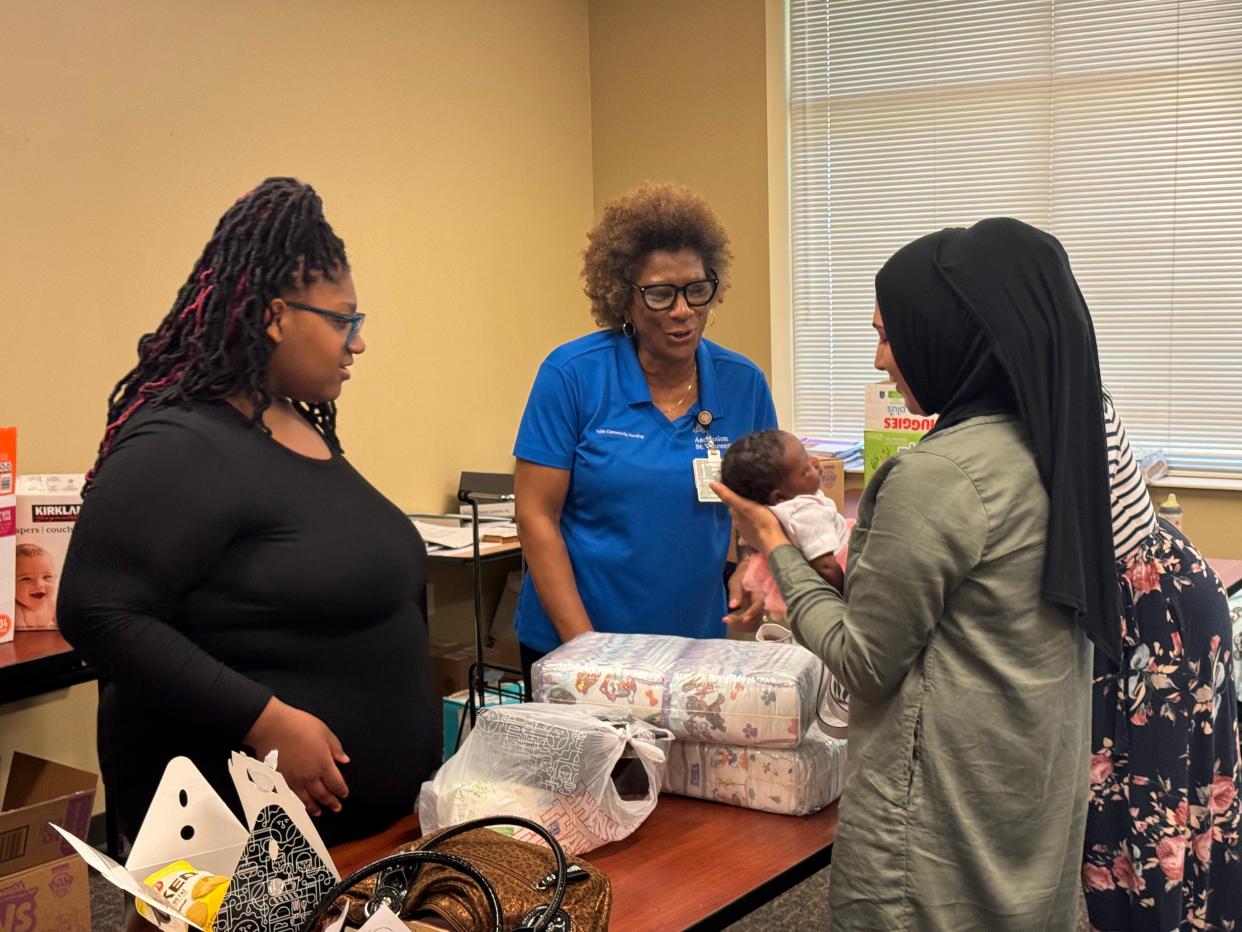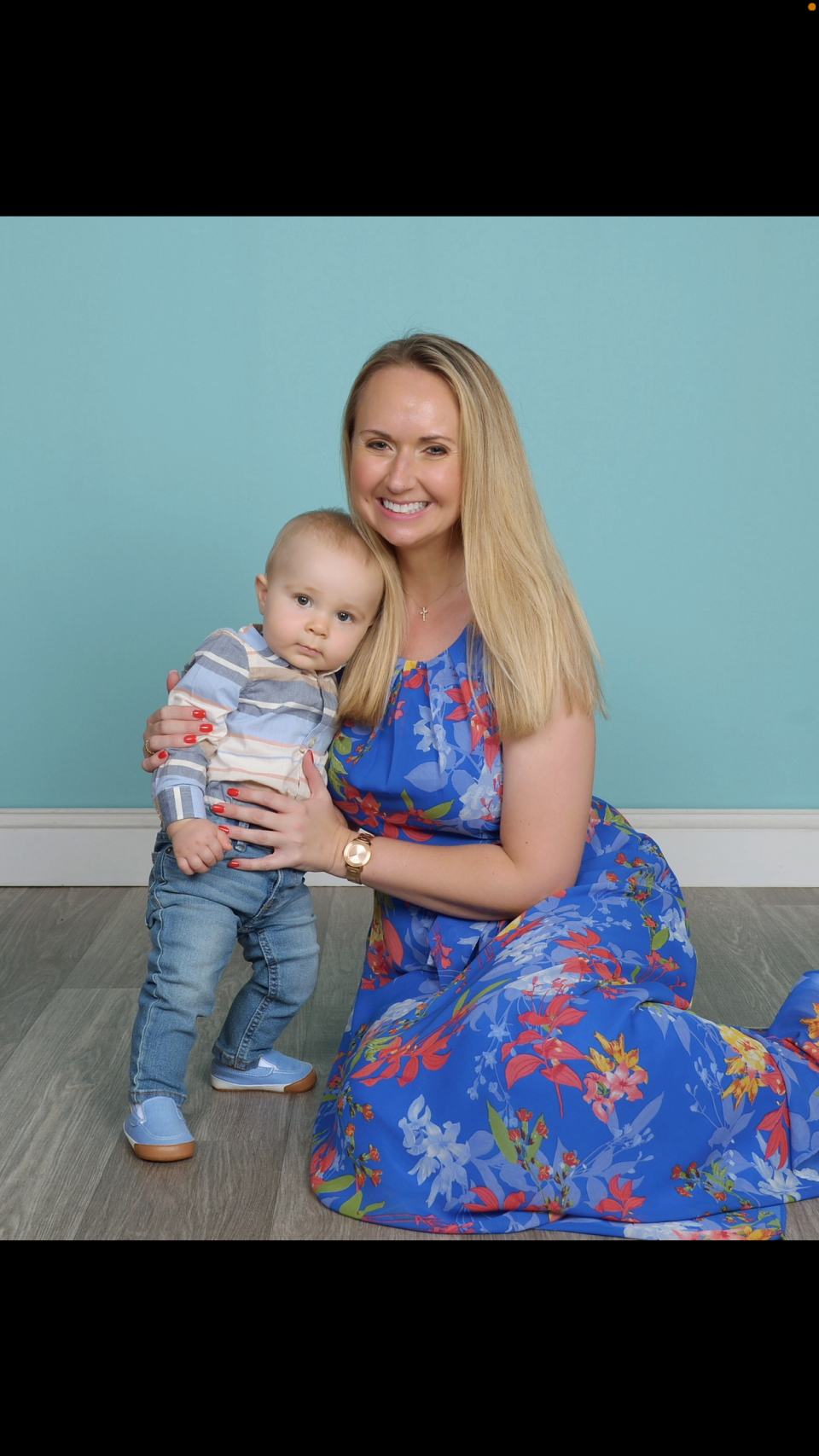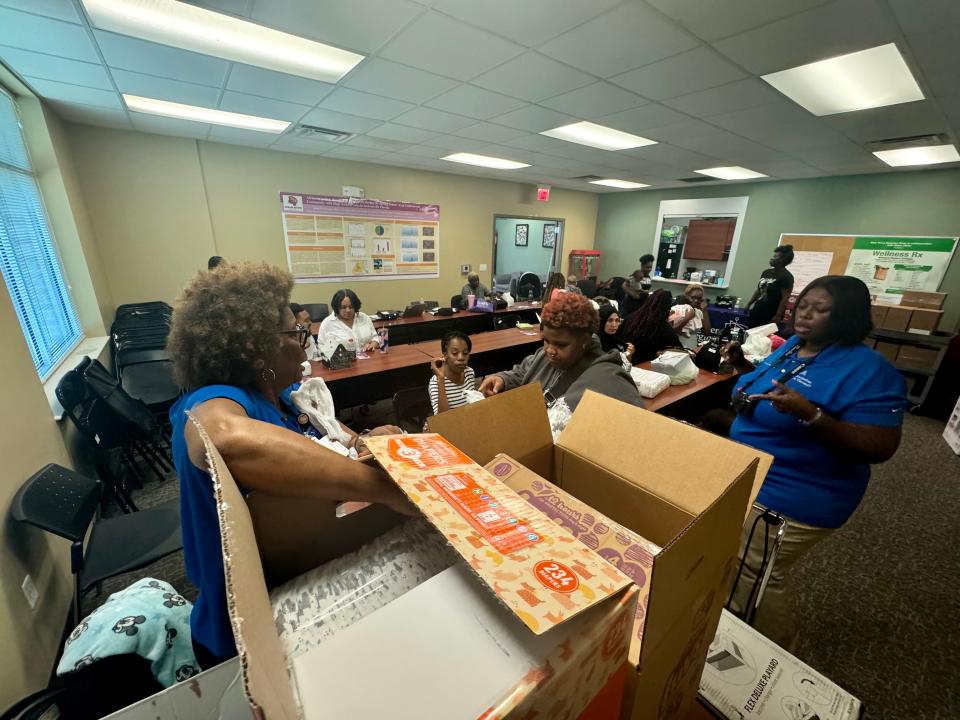Infants are dying: Efforts in Jacksonville strive to help moms and reduce mortality, SIDS

In Duval County’s long battle against a stubbornly high infant mortality rate, 18-month-old Kenneth is a survivor.
Early in her pregnancy, mother Kimberly Dingler was single, living by herself and frightened of the uncertainty ahead.
"This was going to be my first baby," she said. "It was a scary time for me. I had never even changed a diaper or let alone even held a baby."
Her UF Health Jacksonville doctors referred her to Brighter Beginnings, an Ascension St. Vincent's Hospital-sponsored program to help reduce Duval County's infant mortality rate, which is improving but still above the state average and other Florida metropolitan areas. Each free three-hour session gave Dingler a wealth of information on topics such as infant care, infant safe sleep skills, prenatal and postpartum education and prevention of SIDS, or sudden infant death syndrome.
Participants had lunch while they were there and often went home with diapers, wipes and formula, as well as boosted confidence.
"I was unsure what to expect, but I knew I needed some help and guidance. I was pleasantly surprised," she said. "It made my first year with my son less stressful. … helped ease my fears."
Communitywide effort underway to reduce infant deaths
Duval County's infant mortality rate is 7.2 deaths for every 1,000 births, compared to the state average of six deaths for every 1,000, births, according to Dr. Sunil Joshi, chief health officer on Jacksonville Mayor Donna Deegan's staff.
For 2019 through 2022, the county's rate for SIDS has been 1.0 for every 1,000 births, compared to the state rate of 0.3, according to the Florida Department of Health. That translated to 12 of Florida's 66 SIDS deaths in 2022, 14 of the state's 65 deaths in 2021, 14 of the 59 state deaths in 2020 and nine of the 60 state deaths in 2019, according to the department.
Although the SIDS rate remains unchanged, Duval's overall infant mortality rate has improved in the last four years — it was 9.5 deaths for every 1,000 births. The state rate has remained "stable over the same time period," Joshi said.

Brighter Beginnings and other programs help pregnant women and new mothers "make a difference" in saving babies' lives, said Faye Johnson, CEO of Northeast Florida Healthy Start Coalition.
"We’ve seen a 35% decrease in [area] infant mortality since home visiting and education programs first started over the last few decades," she said. "However, the rates continue to be influenced by the social determinants of health and policy issues that will need to be addressed before we can make further progress in Northeast Florida."
Joshi agreed.
"There is a combination of factors at play, including access to OB care early in pregnancy, substance misuse, pre-term labor, congenital infections and unintentional sleep-related death," he said. "The social determinants of health, which include inequalities in income, housing and health literacy also play a role. Many younger women do not understand the importance of prenatal care in achieving a successful pregnancy and healthy baby."
'Concerted effort needed': Jacksonville's deep-rooted health disparities can impact lifetimes
Deegan has made the issue a priority, and several years ago the City Council included an infant mortality focus area in their strategic plan, Johnson said.
Joshi credited the reduced Duval rate to nonprofits using community health workers to "engage with prenatal and post-partum women" on such topics as self-care, substance misuse, breastfeeding and appropriate sleeping arrangements for newborns."
The community health workers "are culturally competent and bring appropriate shared life experiences with these families," he said. "This allows for a deeper connection at the grassroots level which allows moms, dads and families to learn from people they feel comfortable with."
The city also plans to fund as many as three additional workers for one of the nonprofits, which can reach about 200 at-risk women a year, Joshi said. "This has the potential to make a major impact," he said.
But the community must encourage more pregnant women to get prenatal care, which includes "appropriate screening tests and medical management to keep themselves healthy," Joshi said. They should also get tested for syphilis because untreated syphilis likely will be passed to the baby. The treatment is "cheap, safe and very effective — penicillin," he said.
Accidental suffocation one cause of infant death
Willie Roberts, Ascension St. Vincent’s Community Outreach-Faith nursing manager, leads Brighter Beginnings, which records show has served 1,056 people since 2014. With a 35-year career in nursing, she readily sees the gaps between what some pregnant women and new mothers and their babies need to thrive and the reality of their lives.

As Joshi noted, the so-called social determinants of health, including economic stability, education and housing, are at play, she said. Some of the women are unemployed and living in cars or in housing that requires families to sleep in one bed. They lack prenatal education or parenting skills, she said. The women in her classes have ranged in age from 12 to 47.
"They come from everywhere," Roberts said. "We don't reject anyone."
A major focus of the classes is safe sleep for infants: Sleeping by themselves on their backs at night and for naps carries the lowest risk of SIDS. About 20% of all infant deaths in Northeast Florida stem from unintentional sleep-related suffocation, according to Joshi.
Community health assessment: Report reveals nagging issues, inequities, opportunities for action in Jacksonville area
Brighter Beginnings also urges women to get prenatal care and helps them to navigate the heath care system, Roberts said. Other topics include nutrition, breastfeeding, parenting skills and domestic violence.
Roberts is determined that the current communitywide effort will be successful.
"We're all in this together," Roberts said. "We're fighting … We're not giving up."
Success stories like Dingler "keep us going," she said. "This is not just a program, it's a ministry."
bcravey@jacksonville.com, (904) 359-4109
TO LEARN MORE
Brighter Beginnings: For more information contact Willie Roberts at (904) 308-7558 or willie.roberts@ascension.org.
Northeast Florida Healthy Start Coalition: For more information call (904) 723-5422 or go to nefhealthystart.org.
This article originally appeared on Florida Times-Union: Jacksonville hospitals, agencies work to reduce infant mortality, SIDS

